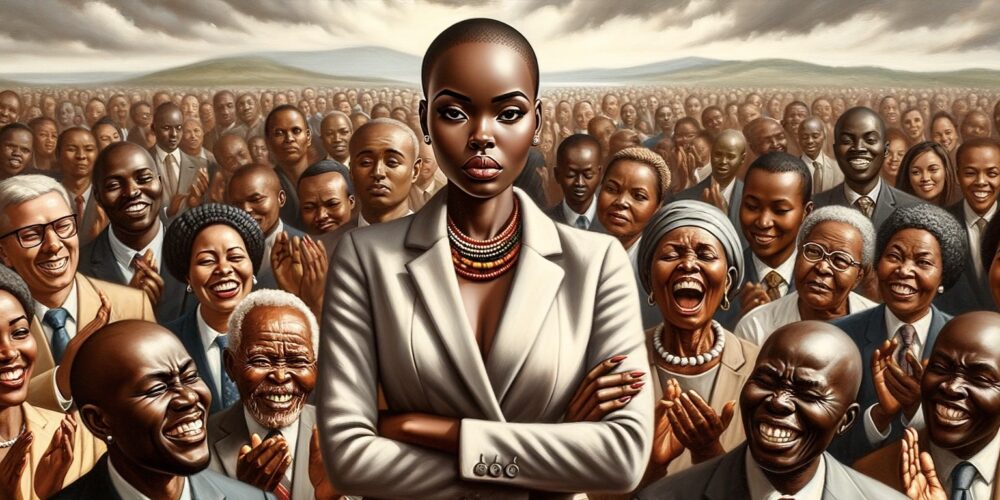Do you have the courage to be disliked?

Years ago I was watching The Simpsons, that cartoon series with a real bite to it. Young Bart faced a moral dilemma at school, and was asking his dimwit father, Homer, for advice: “Dad, is it more important to be popular, or to do the right thing?” Homer’s quick response: “You’ve gotta be popular, son. If you’re not popular you’re doomed!”
There are many Homers amongst us. We seem to be wired to seek to be liked, appreciated, popular. To have people fond of us or cherishing us fulfils a basic human need—that of belonging to a group. We feel a warm emotional glow inside us when we feel wanted and appreciated.
But to chase after this feeling is to chase a mirage.
I referred recently on this page to a book with a rather contrarian title: The Courage to be Disliked, by Ichiro Kishimi and Fumitake Koga. Let me tackle its central subject head-on today. Why would anyone want to be disliked?
Consider first that there are many problems created by the need to be liked. Popularity is ethereal and transient, and often achieved for the most dubious of reasons. You might be in today, but you could just as easily be out tomorrow. The game resets every day. Winning today only means that you win today—tomorrow is another game. You never really cross the finish line, because you could soon be back to the starting block.
The minute you hang your self-worth on the judgement of others, you have constructed a terrible prison for yourself. Others now dictate the terms of your happiness. They decide for you whether you are worth anything; you have relinquished all agency. External juries rule you, and they rule not through wisdom, but by the shifting winds of public opinion. You are now part of everything that is shallow in this world, and you are trapped.
Consider also that it is impossible to be liked by all. Even those pursuing the most selfless, generous lives were disliked intensely by some in their ambit. Jesus was nailed to the cross. Mother Teresa was accused of indulging in the promulgation of suffering. Mahatma Gandhi was assassinated by a section of the people whose independence he fought for. Martin Luther King Jr faced opposition not just from white supremacists, but also more radical black activists. Joan of Arc was burned at the stake, despite leading her people to significant victories. Socrates was forced to drink poison by his own state.
You can’t be liked by everyone—and that’s not only OK, it’s good. To be liked by everyone is to stand for nothing. To gain universal approval is to play so safe that any semblance of individual identity has been scrubbed away. The greatest amongst us have never been universally liked. They challenged the status quo, they ruffled many feathers, they dared to be different. They were opposed and fought, but they had something the so-popular never will: they had purpose—a cause bigger than themselves, and one predicated on helping others.
The antidote to poisonous popularity is authenticity—the freedom to be who you are. Having some personal values and principles, and staying true to them, bestows a deeper meaning to life. When you are authentic, you will attract people who believe what you believe, and who respect the way you do things. That might be a thousand people, or it might be ten. The point is to free yourself from the shackles of a numbing, dumbing need to be liked.
Your worth comes from you, and from the lives you have a genuine impact on. It doesn’t come from the applause or opinions or likes of the multitudes. Praise and adoration are temporary drugs delivering short-lived highs. It is better to be appreciated deeply by those who truly value you as you are, rather than be admired superficially by the throngs and legions who are fooled by the show you are putting on.
A caveat, though—and it’s a big one. You should not aim or hope to be disliked! That is also done by some, those who court controversy and offer astringent viewpoints with the intention of alienating some people while attracting their fellow haters. The instigation and cultivation of hate is never admirable.
The deeper point is to live your life without making popularity and external appreciation one of its core aims. It is to get on with your life on your terms, and let popularity or its lack ensue.
The calmest people I have known have this demeanour. They don’t set out to agitate anyone or to behave badly. They don’t worry about who likes them and who doesn’t. They are simply true to themselves and their own sense of higher purpose. Popularity is not a goal, but it might become a bonus, a side-effect. To be disliked is also not a goal, but neither is it something they are afraid of. They have the courage to be disliked, and that has given them the freedom to be themselves and to live by principle.
I have written these words. Some of you may like them, others may not. I’m cool with that.
(Sunday Nation, 22 October 2023)

Buy Sunny Bindra's new book
The X in CX
here »
Popular Posts
- Use AI, but don’t lose youOctober 19, 2025
- NY’s wake-up call to the old guardNovember 9, 2025
- Save your strength for repairsNovember 2, 2025
- Empathy is the missing code in CXOctober 26, 2025
- Why your mother was right about your anxietyOctober 12, 2025















